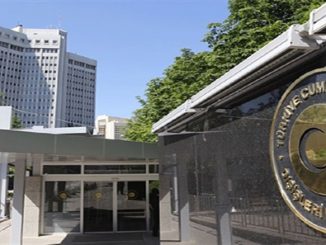
When critics of the Sisi regime speak freely outside Egypt and expose corruption and violations, their families inside pay the price.
Egyptian police have jailed the relatives of Abdullah El-Sherif, one of Abdel Fattah al-Sisi’s loudest critics in exile, in attempt to silence all opposition.
When the popular Egyptian blogger and YouTuber shared an audio leak highlighting corruption in Egypt, where two of Sisi’s advisors were dividing bribes in millions, the Egyptian authorities soon arrested his family, including his 74-year-old father.
As an exiled dissident, Abdullah El-Sherif could afford to be bold enough to broadcast an audio leak a few days ago, revealing bribes in millions for Sisi’s advisors. But days later, on Monday, security agents burst into the homes of his family in the seaside city of Alexandria and arrested his two brothers and his 74-year-old father without charges.
Instead of holding the corrupt advisors to Sisi accountable and arresting them for investigation, the Interior Ministry released a statement that the audio leak is fabricated, coercing some poor people to confess they fabricated the audio and sent it to El-Sherif. Furthermore, the security forces arrested the family of the well-known youtuber who is living abroad.
After arresting his old father and brothers, Abdullah El Sherif tweeted:
After arresting my brothers, they have arrested my father, the elderly man , 74, after a naive statement by the Egyptian Ministry of Interior, to prompt me to shut up and not to release any data that destroys their entire narrative about the leak, which I swear is in my hands now. Oh God, I entrust you for my father and my brothers, as they have no one but you to protect them and have mercy on them, for you know they have nothing to do with this.
While Abdullah El-Sherif is in exile, beyond the reach of Egypt’s security forces, his brothers and old father languish at Abdel Fattah al-Sisi’s prisons.
The Egyptian government, which has stifled nearly all criticism at home, is trying to silence critics abroad by jailing their family members in Egypt, human rights groups say. Since early 2019, it has arrested the relatives of many dissidents in exile.
https://da7b6d057bb1fe1324f864d711850efa.safeframe.googlesyndication.com/safeframe/1-0-38/html/container.html Security agents usually break down front doors, confiscate money and passports, force parents to denounce their children on television, and detain fathers and brothers, several of whom have been charged with terrorism and imprisoned.
Egypt’s rulers have long employed such tactics against the families of suspected drug traffickers and jihadists. But as Abdel Fattah al-Sisi has cranked up the repression in recent years, he has broadened his focus to target the families of exiled dissidents, journalists and cultural figures.
Inside Egypt, al-Sisi jailed opponents and largely subjugated the news media. His intelligence services have acquired stakes in the largest private TV networks, and blocked over 500 websites.
But his iron grip on Egyptian media may have inadvertently helped raise the profile of news outlets and bloggers based abroad.
Egypt’s nominally independent private TV stations all offer similar, pro-state news and commentary. Talk show hosts seem to sing from the same hymnal. News bulletins can have a whiff of Soviet-era control, while government critics are branded as agents of the Muslim Brotherhood.
Egyptian viewers, bored with the homogeneous programming or in search of unfiltered news, are increasingly turning to foreign media as an alternative.
In addition to YouTube channels like Mr. el-Sherif’s, there is anecdotal evidence that many Egyptians quietly tune into opposition TV stations like Turkey-based Mekameleen, which is sympathetic to the Muslim Brotherhood, and Al Sharq.



